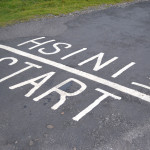
Source: flickr.com
For those of you interested in working in the international development field, starting your search will involve more than just deciding on what the focus of your studies will be, but conceptualizing the development landscape to make sure that you are pointing your career search in the right direction. Luckily, Michele Carter, an Association of Professional Schools in International Affairs (APSIA) aluma wrote an essay that can offer some additional tips to those of you interested in the field.
The following is taken from the Seventh Edition of Careers in International Affairs, edited by Maria Pinto Carland and Lisa A. Gihring, and published by Georgetown University Press in 2003. If you’d like to read the full version of the book, the Maxwell Center for Career Development has a copy on file in their library.
Many people want to enter international development because of a desire to help others, for the adventure of living in developing countries, to experience new cultures, and to share their technical skills with people who need them. They often don’t realize how difficult it is to break into the field.
Traditionally, most development organizations have hired former Peace Corps volunteers, or those who have completed two years of “living among the people,” but such experience is no longer sufficient. Development organizations can now be choosy. Not only do we require at least two to five years of field experience, but we also look for the following skills:
- A technical skill such as public health, agriculture, or natural resources. The current trend is microfinance, HIV/AIDS, human rights, and education;
- An advanced degree (M.A. or doctorate, in some cases) in a technical field (i.e., MPH);
- Analytic, policy, and advocacy skills (particularly for Oxfam, Medecins sans Frontiers);
- Fluency in foreign languages;
Development work is not confined to the field — there are other arenas. A person can work from a (bilateral or multilateral) donor’s perspective (i.e., USAID, the Canadian International Development Agency, EU and World Bank), from a development organization’s perspective (i.e., CARE, Catholic Relief Services, Save the Children), and from some policy think tanks (i.e., Brookings Institution, Asia Foundation). Even within those categories, a person can work in fund-raising, project management, financial aspects, policy development, and so on.
It goes without saying that people must have good to excellent management and interpersonal skills in intercultural contexts—this includes coaching and mentoring national staff.
